50 Facts About Happiness That Will Change the Way You Think Forever

Happiness seems like a simple-enough concept. It means feeling good; it’s a thing that you’d just know if you saw it. But it turns out there are a wide range of definitions about what exactly happiness is. Is it something indulgent and hedonistic, or more long-term and fulfilling? Is it a burst of uninhibited laughter, or does merely an amused smile count?
Yes, happiness is a concept that is far more complicated than your average self-help book might lead you to believe—and it’s one packed with surprises. There are plenty of counterintuitive things that bring us joy or take it from us, and unexpected ways to gain happiness. Here are 50 surprising facts about what it actually means to be happy.
1
Freedom Boosts Happiness More Than Money

It’s as the saying goes: money can’t buy happiness. Nobel Prize–winning economist Amartya Sen found that societies that expanded their level of freedom and independence saw a corresponding boost in the quality of life of the citizens. He concludes that allowing people to live the way they prefer to is far more likely to result in widespread satisfaction than the usual focus on GDP and other economic concerns.
2
Happiness Improves as We Age

Here’s some good news for anyone actively planning to grow older: Chances are that your level of happiness will grow with the number of birthday candles on your cake. A study by the University of Alberta tracked subjects level of happiness over a 25-year period, determining that across the board (and controlling for other variables), those who got older, got happier.
3
Some Cultures Frown on Happiness

While happiness is a highly valued trait in Western cultures, that’s not the case worldwide. “In fact, some individuals across cultures are averse to various kinds of happiness for several different reasons,” according to Mohsen Joshanloo and Dan Weijers at Victoria University of Wellington in New Zealand. They found that in a number of cultures, from Japan to Germany to the Middle East, a tendency toward “happiness aversion” can be found. The reasons for this avoidance of happiness fall into a range of categories that might seem, well, foreign to Americans:
- Being happy makes it more likely that bad things will happen to you
- Being happy makes you a worse person
- Expressing happiness is bad for you and others
- Pursuing happiness is bad for you and others
4
Phone Calls Are Better for Happiness Than Texts

Or at least, they’re better for the happiness and health of long-distance relationships. Researchers found that those who communicated via phone or webcam were more likely to feel emotionally supported by their significant other. Those who used text messages and instant messaging felt no such connection.
5
Lights Make a Big Impact on Happiness

In his book of science-based tips for improving happiness, Happiness Hacks: 100% Scientific! Curiously Effective!, Alex Palmer writes “Feeling down? Turn on some lights—or at least turn them up. In three separate study conditions, researchers found a correlation between people’s feelings of hopelessness and their perception of room lighting. They found that participants rated the brightness of a room as darker when they were feeling hopeless and also indicated a preference for a brighter room.”
6
Pets Make You Happy

Yeah, we know—duh. But here’s where it gets interesting: According to Allen McConnell, university distinguished professor at Miami University’s Department of Psychology, the difference between felines and canines is nil. As he said in Happiness Hacks, “We’ve never found differences between dogs and cats. The primary difference is the extent to which you anthropomorphize the pet. If you view your iguana as having human-like compassion and qualities, it’s as good as a golden retriever. It’s all in the mind of the owner.”
7
Happiness Is Contagious

It turns out that surrounding yourself with happy people will cause that happiness to rub off on you. Those were among the findings of researchers who looked at the Framingham Heart Study, which looked at the health and happiness of more than 4,700 residents of the city of Framingham, Massachusetts, and found that people who reported feeling happy tended to form their own “clusters” with one another. They found that your likelihood of happiness rises 15.3 percent if a family member or close friend is happy.
8
Happy Places Also Have High Suicide Rates

The countries and states that get high places on the “Happiest Places” lists also tend to have the highest suicide rates, according to research from the University of Warwick, in Coventry, England; Hamilton College, in Clinton, New York; and the Federal Reserve Bank of San Francisco. “This result is consistent with other research that shows that people judge their well-being in comparison to others around them,” one of the researchers noted. “These types of comparison effects have also been shown with regards to income, unemployment, crime, and obesity.”
9
Bad Days Can Be a Good Thing
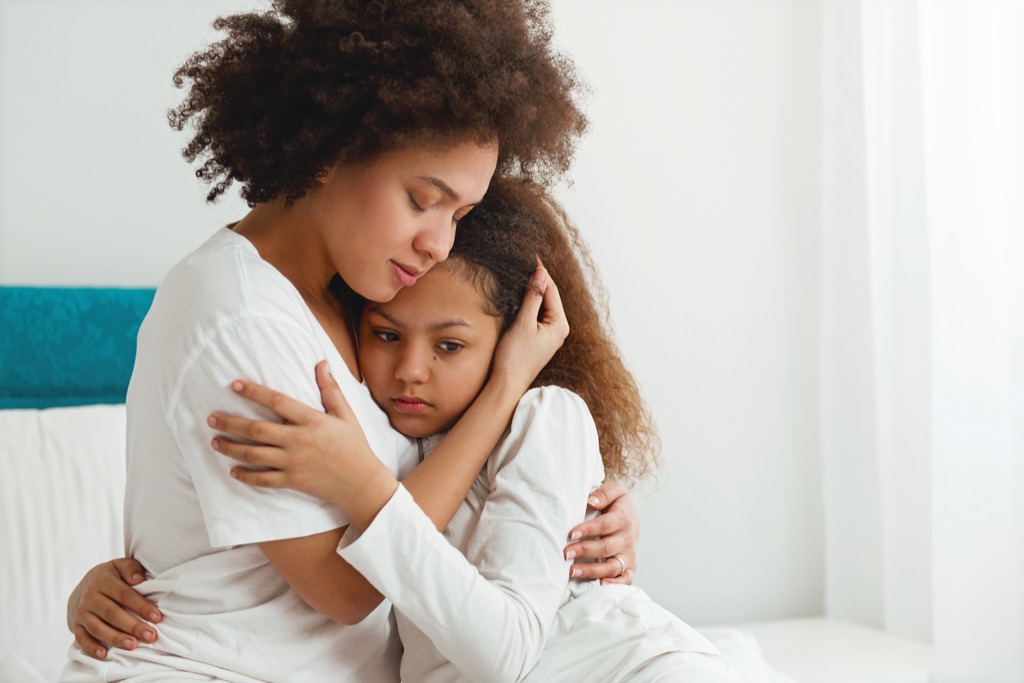
Just as experiencing emotions beyond happiness can have surprising, positive side effects, bad days can actually be good for your long-term happiness. A psychology team from the Franklin W. Olin College of Engineering found that subjects who experienced a combination of happiness and sadness at the same time were more likely to improve their sense of mental health over the long run.
10
Small Towns and Rural Areas Are Found to Foster Happiness

Big cities aren’t great for one’s happiness, according to findings from public policy researchers at the University of Texas at Dallas, who examined data from the General Social Survey, revealing a correlation between higher levels of happiness and being located in a small town or rural area.
11
Being Happy Might Make You Less Creative

Another point Palmer brings up is that, as a study by University of North Texas’ Mark A. Davis revealed, “moderate levels of positive moods can help to open up our minds and get us to think outside the box. But those experiencing high levels of happiness did not exhibit the same burst of creativity as those feeling less cheery.”
12
Over-Happy People Make More Mistakes

As Palmer explains in Happiness Hacks, “Researchers have developed the concept of ‘depressive realism’—that depressed people have a more accurate view of the world around them and their place in it,” and in one study, “Participants were asked to press a button and a green light would or would not turn on. When asked to rate the level of control they felt they had over the light, the nondepressed subjects overestimated how much control they had, while the depressed students were much more accurate.”
13
Our Love of Happiness Is Relatively New

We imagine that “the pursuit of happiness” is part of a person’s DNA, but, as Peter N. Stearns explains in Harvard Business Review, “Until the 18th century, Western standards encouraged, if anything, a slightly saddened approach to life, with facial expressions to match. As one dour Protestant put it, God would encourage a person who ‘allowed no joy or pleasure, but a kind of melancholic demeanor and austerity.'”
14
The Enlightenment Heralded Happiness Obsession

According to Stearns, our modern concern with personal happiness can be traced back to the Enlightenment, with Alexander Pope stating “Oh happiness! Our being’s end and aim!” and John Byrom stating “it was the best thing one could do to be always cheerful.” That philosophy influenced western thinking more broadly, and shaped how Americans in particular viewed their sense of life satisfaction.
15
Advances In Dentistry Made Us Love Happiness

Smiles didn’t used to be all that pleasant to look at, so, as Stearns points out, “One historian has also noted the 18th century as a time of improved dentistry, when people became more willing to lift their lips in a smile; he argues that the ambivalent smile of a Mona Lisa probably reflected embarrassment at tooth decay.”
16
Exercise Boosts Happiness—In Less Time Than You Think

While the connection between physical and mental health has been well established, it turns out that a little bit of physical activity has a significant, positive impact on one’s mental health, and in less time than might otherwise be expected. Researchers have found that exercising just 10 minutes improves a subject’s mood, reduces stress, and generally enhances wellbeing.
17
But Exercising Longer Doesn’t Necessarily Improve Happiness

But while some exercise boosts one’s mood a bit, a lot of exercise doesn’t necessarily boost their mood a lot. The same study tracked the responses of subjects after 30 minutes of exercise and found that there was no marked improvement in their moods over those who exercised just 10 minutes.
18
Coffee Increases Happiness

Don’t listen to those who try to tell you that too much coffee is bad for you. According to a study by Spanish researchers, those who drank two cups of coffee per day were 22 percent less likely to die over the decade they were studied than those who didn’t drink coffee. More impressive: Those who drank four cups of coffee were 64 percent less likely to die than the non-coffee drinkers. So warm up that coffeemaker!
19
Fruits and Vegetables Bring Joy

They aren’t just good for your physical health. It turns out they enhance your wellbeing, too. One study of more than 12,000 Australians found there to be a correlation between the consumption of fruits and vegetables and increased levels of happiness.
20
Happiness Is Rising

An analysis of the average happiness of countries throughout the world found that it’s largely on the upswing. Examining the World Database of Happiness, which involve 1531 data points in 67 nations, a pair of researchers determined that “Both GDP and happiness have gone up in most nations, and average happiness has risen more in nations where the economy has grown the most.”
21
Mindfulness Makes Sweets Taste Better
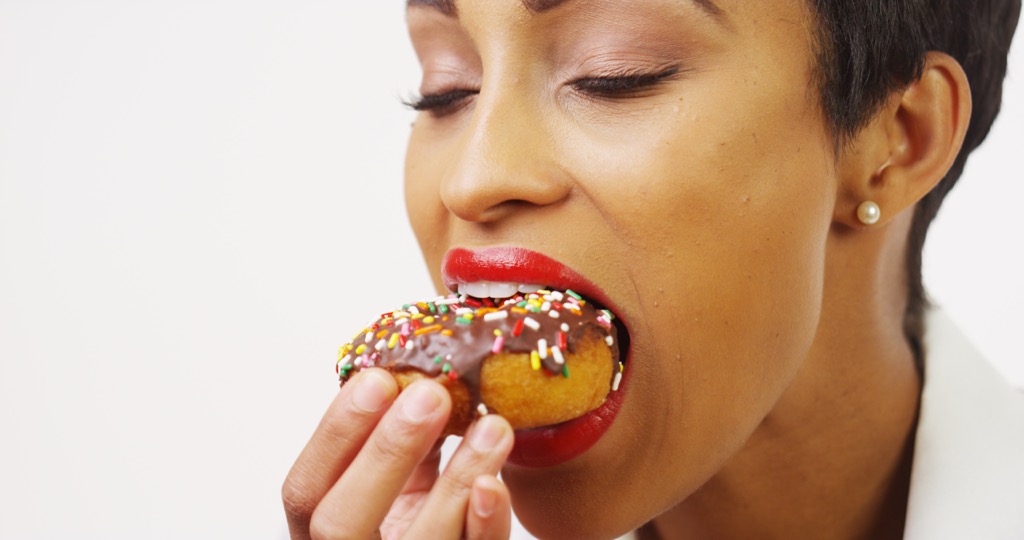
While there’s no reason to doubt that chocolate makes a person happy (at least in moderation), that enjoyment can be enhanced by stopping and thinking about the chocolate. That was the finding of a Gettysburg College study in which 258 subjects ate chocolate or crackers and some were asked to think deliberately about what they were eating, focusing on the color, taste and tactile sensations. Those who were more mindful about their chocolate eating reported higher positive moods.
22
Not Everyone Defines Happiness the Same Way
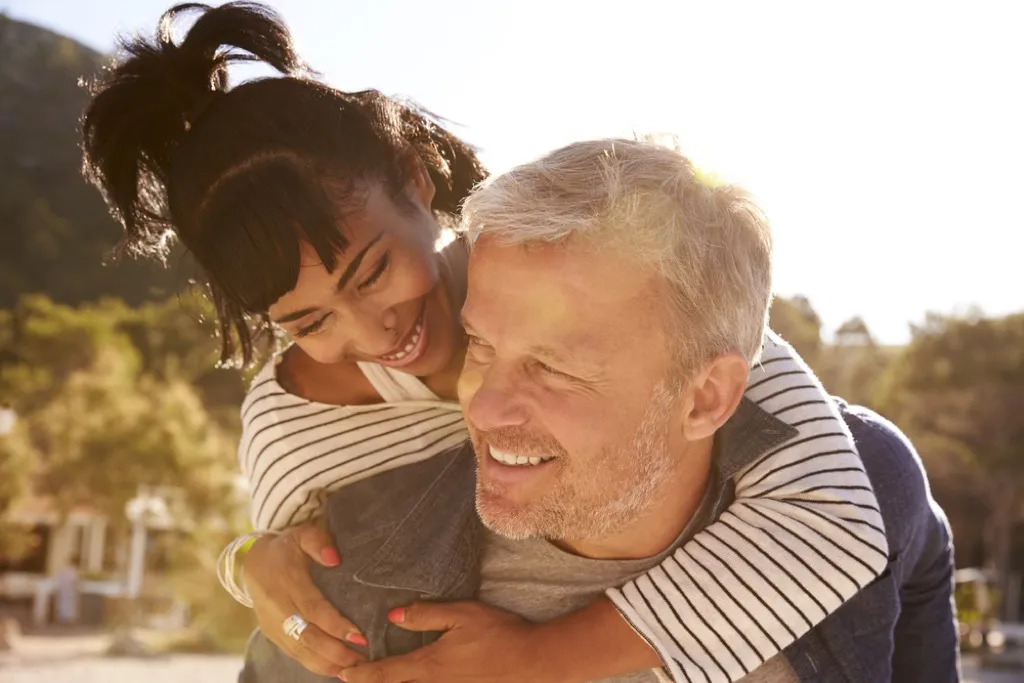
Happiness may be a cultural construct. While Americans tend to think of it as wearing a big smile and enjoying one’s self, according to a team of researchers writing in the Journal of Happiness Studies, “in North American cultural contexts, happiness tends to be defined in terms of personal hedonistic experience and personal achievement, whereas in East Asian contexts happiness tends to be defined in terms of social harmony.”
23
Dehydration Brings Down Your Happiness

Staying hydrated doesn’t just make it easier for you to tackle a physical task—it boosts your mood so you perceive it as more manageable. In one study, researchers found that dehydration led subjects to view a task as more difficult than those who were fully hydrated, impacting their reported levels of wellbeing and happiness.
24
California Has A Bunch of Happy Cities
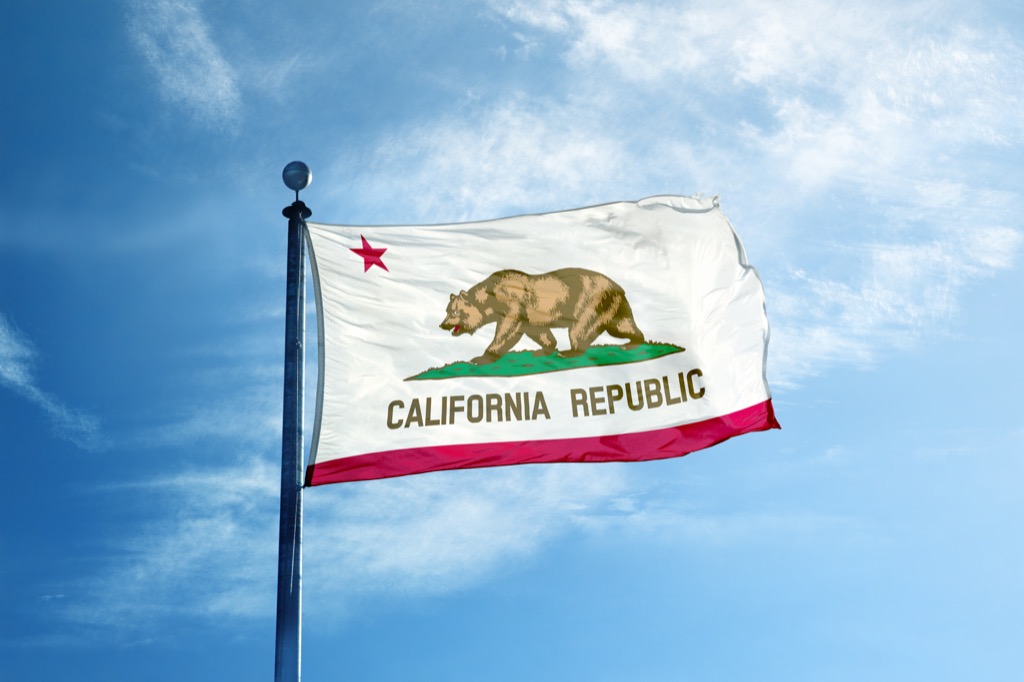
According to WalletHub’s “Happiest Cities in America” ranking, some of the happiest cities in the country are in California. The most happy city on its list, scoring 79.89 based on emotional and physical wellbeing, community, environmental factors, and more, is Fremont, with the Silicon Valley hub of San Jose taking the number-three spot. Irvine came in at number eight, and Huntington Beach stole the number-nine position.
25
The Dakotas Are Pretty Happy, Too

According to the WalletHub survey, North and South Dakota are home to some pretty happy places as well, with the city of Bismarck, North Dakota, coming in second on the list. Fargo, North Dakota (despite it’s dour cinematic roots) came in sixth, and Sioux Falls, South Dakota, was slated at number seven. A big part of their high rank may relate to income and unemployment in the states, with Bismarck and Fargo respectively holding the number-one and number-two spots for that particular factor. And for more on which cities have the most inherent joy, meet The 100 Happiest Cities in America.
26
Hawaii Is the Happiest State

But when looking at states as a whole, Hawaii takes the top spot, according to WalletHub, with the highest levels of emotional and physical well-being of any of the states measured. It’s followed by Utah, Minnesota, North Dakota, and California, respectively.
27
Detroit Isn’t Too Happy
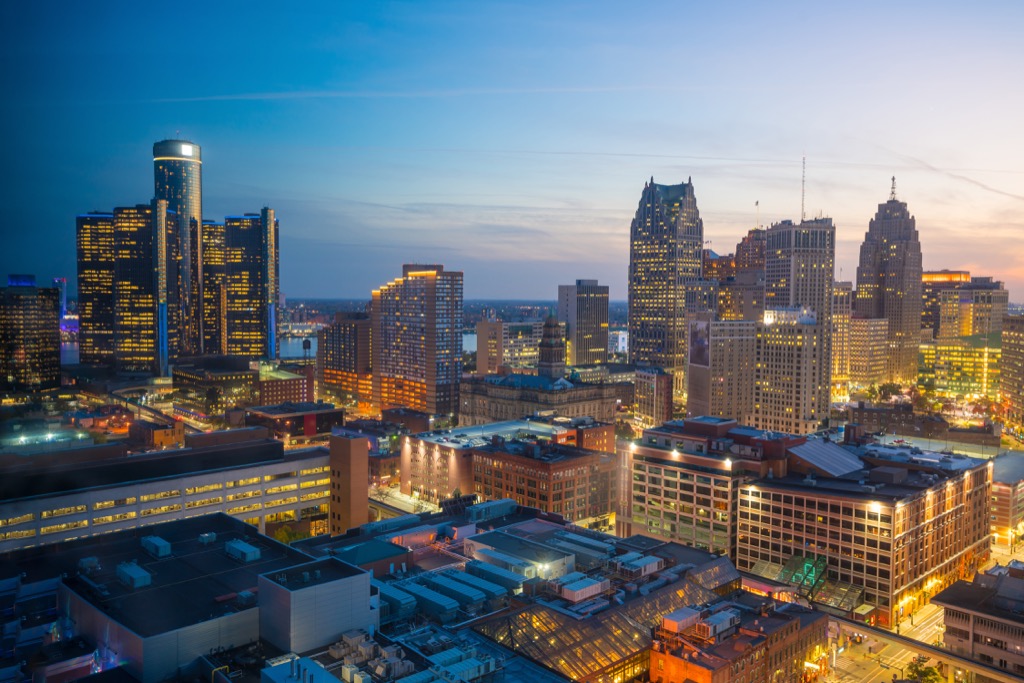
Of the 182 cities that WalletHub ranked, Detroit landed dead last on its list, with just 28.65 points, due to its lack of emotional and physical wellbeing and job opportunities.
28
The Least Happy State is West Virginia

At the very bottom of WalletHub’s list of happiest states is West Virginia, with dismal rankings in all three main categories. The state is also home to two of the lowest-ranked cities on the Happiest Cities List: Huntington (180) and Charleston (177).
29
Equality Is Great for Happiness
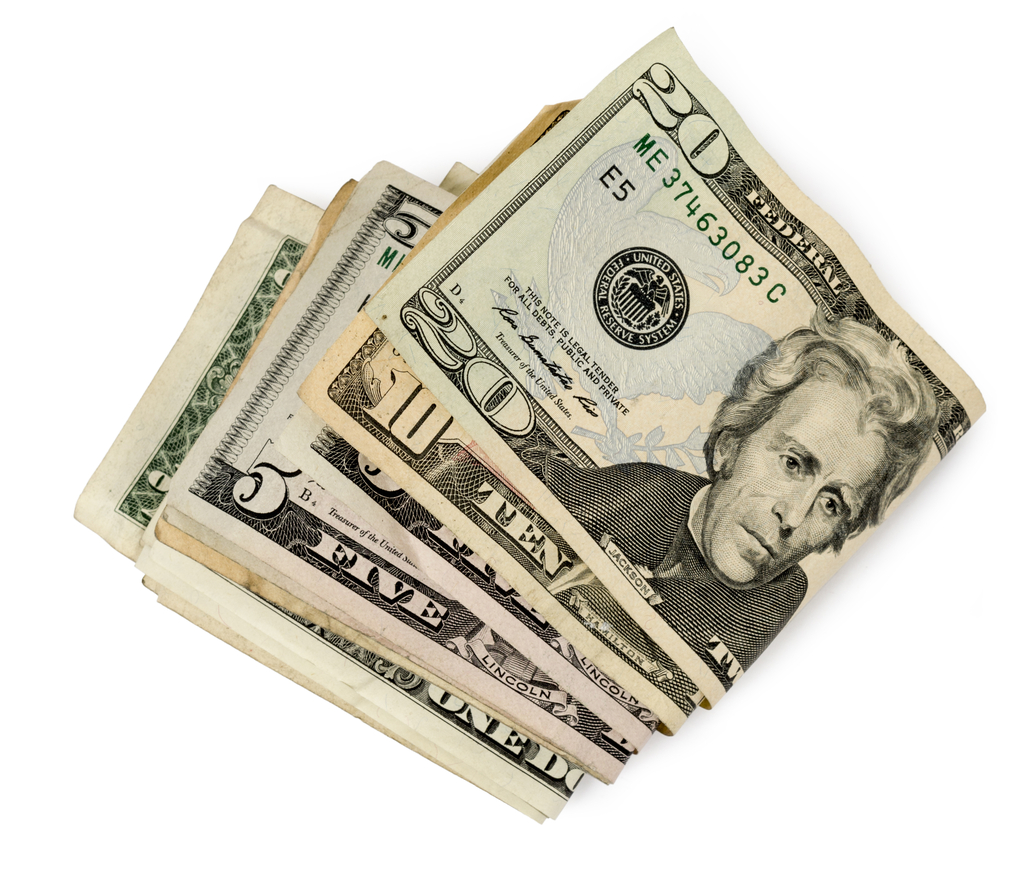
Income inequality is an oft-discussed topic when it comes to politics, but it turns out it also has a major impact on one’s individual wellbeing as well. Researchers have found that societies with greater levels of inequality between the rich and poor see greater declines in physical health, mental health, and the wellbeing of children.
30
You Can Literally Throw Unhappy Thoughts Away

It turns out, by writing negative thoughts down and physically throwing them away, you can “get rid of them.” At least that’s what one study found, which asked subjects to do just that while another control group wrote down the thoughts and just reread them. The group who threw the negative thoughts out reported feeling less negative.
31
Hosting a Sporting Event Raises a Country’s Morale

If a society is experiencing widespread unhappiness, something that can help boost spirits is to host a major sports event. It doesn’t matter if the host country wins or loses, just so long as it hosts the game. That was the findings of a study of 12 European countries in which the ones hosting an international event such as the Olympic Games or World Cup enjoyed a large boost in the satisfaction among its citizenry.
32
Building Something Makes Us Love It More

“You’ll get more joy from the things in your home when you make them yourself,” Palmer writes in Happiness Hacks. “That was the finding of a group of researchers who found that when a group of subjects exerted effort to produce three different products (IKEA storage boxes, origami, and Lego models) it increased the value that was placed on them.
33
Scandinavia Dominates in Happiness
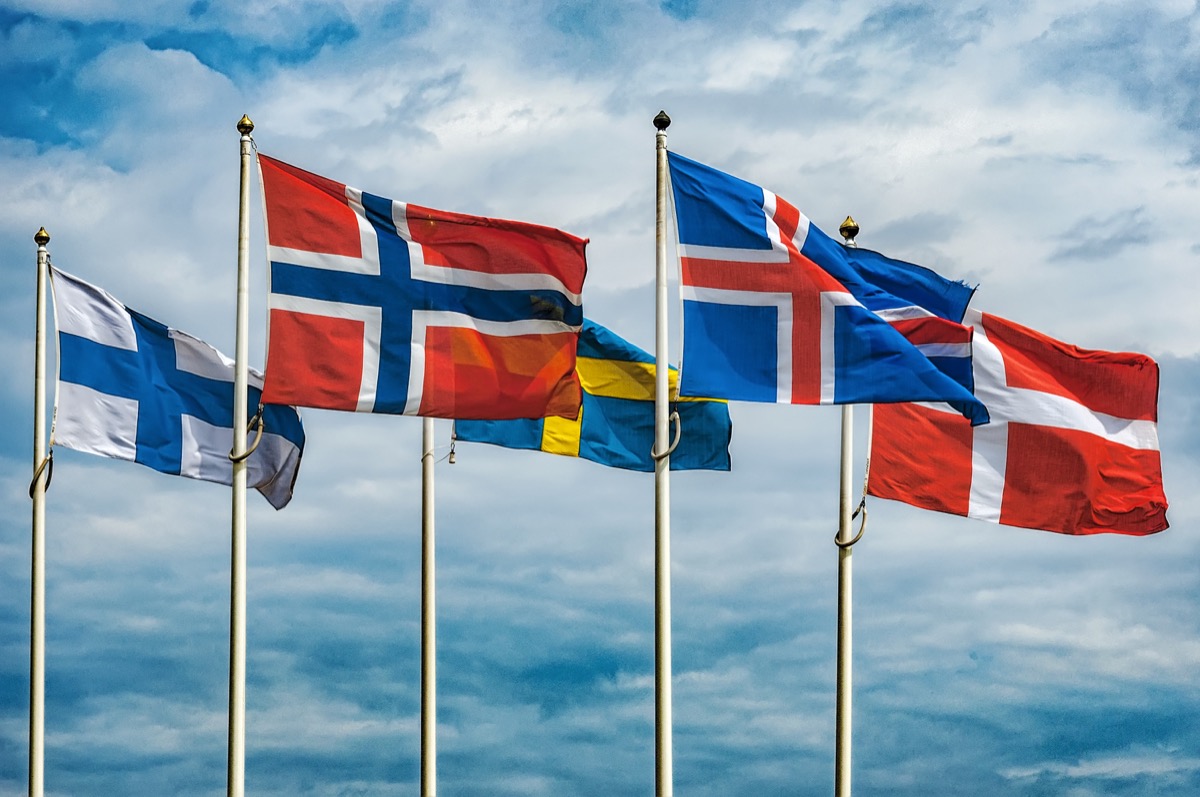
You can’t touch Scandinavia when it comes to highest levels of happiness. According to the United Nations’ World Happiness Report of 2017, the happiest countries were Norway, Denmark, and Iceland, respectively. Compare that to the top three in 2012, the first year the report was released: Denmark, Finland, and Norway, respectively.
34
GDP Is Key

Have you ever wondered how the UN measures the happiness level of a country? Through a whole slew of variables relating to the quality of life of the citizens and plenty of other factors. But according to the UN, three-quarters of the differences among these countries come down to just six variables, including GDP per capita, healthy years of life expectancy, and level of social support. The happiest countries all did great on these factors.
35
There’s Happiness Inequality Throughout the World

Like so many other resources, a wealth of happiness is not enjoyed equally throughout the world. In her lecture, Science of Happiness, Harvard evolutionary psychologist Nancy Etcoff explains that, “We see here in the United States one of the highest levels of happiness…. We see parts of Africa [with] tremendous unhappiness … What we find is that circumstances mean a huge amount when people have very little. So if you have great poverty, if you have tyranny, if you have great inequality, these things are going to drag down happiness.”
36
The Internet Does Not Make You Happy

If you don’t know, the Internet is not a good place to go looking for happiness. That was the determination of a study that asked subjects to state what they go online to do and their level of happiness. The subjects who saw the Internet as a way to connect with others or to help solve a personal problem, were found to be more likely to suffer depression, social anxiety, and worse (compared to those who just went online for active tasks like seeking out information or sending email).
37
Happiness Isn’t Everything

While we may think that all you need is happiness, it turns out that a better goal is to have a good balance of so-called “emodiversity” (feeling a mix of emotions such as joy, amusement, and sometimes melancholy or less positive emotions). A study of more than 37,000 people found that high levels of this emodiversity resulted in higher levels of physical and mental health. So look for more than just mere happiness.
38
The Pursuit of Happiness Can Be Bad for Relationships

While all relationships aim to be happy ones, dedicating too much time to finding happiness can end up creating the opposite result. Researchers found that the more value subjects put on happiness, the lonelier they described feeling in daily diary entries.
39
Accepting Negative Feelings Helps You Overcome Them

The flip side of that study is that those who accepted their negative feelings were able to overcome them with greater speed and to start feeling better more quickly. A study that asked those with panic disorders to either accept, suppress, or control their feelings of anxiety found that those who were told to accept them overcome their negative feelings more quickly than either of the other two groups.
40
Expressing Unhappiness Can Help Boost Your Happiness

“As with many emotions, the feeling of loneliness can often seem like something we can’t help—something external to ourselves that we must simply accept,” Palmer writes in Happiness Hacks. “But an analysis of intervention strategies for reducing loneliness in adults found that it could in fact work well to lead individuals to change the way they respond to their feelings of loneliness. Just by encouraging people to tell someone about their feelings, the researchers saw progress in the subjects and improvement in their moods.”
41
Plants Make You Happy
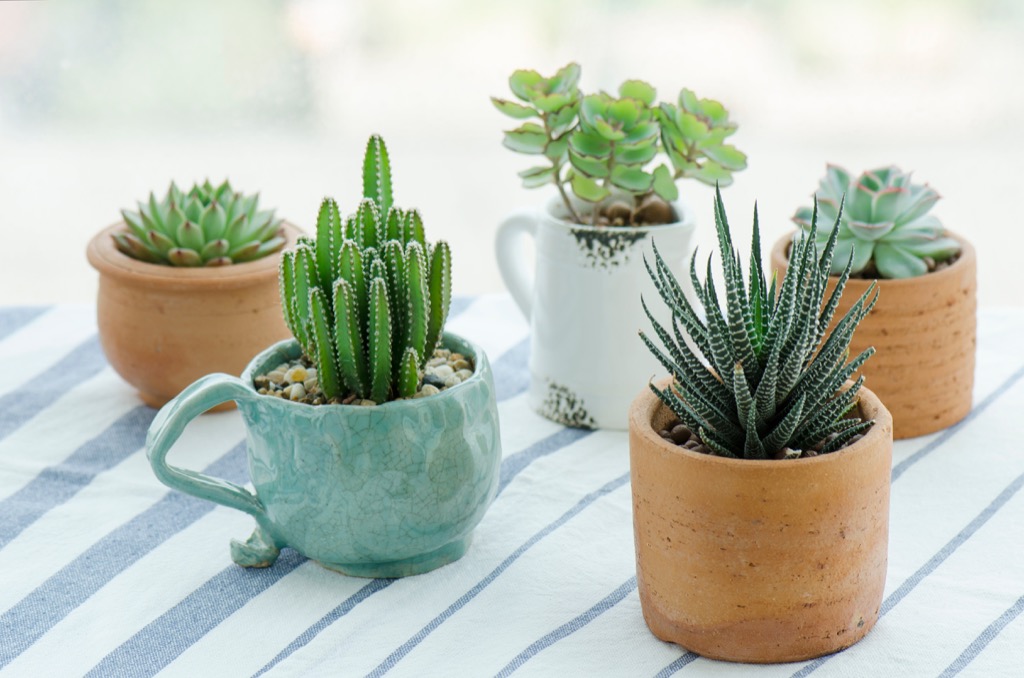
One consistent finding across numerous studies is that nature—walking in it, looking at it, even thinking about it, tends to boost happiness. For example, in one study of prisoners it was found that those with views from their cells of surrounding landscape suffered fewer stress-related illnesses than those prisoners who did not have the views.
42
Yellow Actually Is a Happy Color

Instead of “feeling blue,” it might be more accurate to say someone is “feeling gray.” Those who are feeling anxious or depressed were found to actually associate their mood with the color gray—selecting variations of the monochromatic color from a color wheel presented to them by researchers from the University Hospital South Manchester. In contrast, healthy participants were most likely to point to the color yellow (especially Yellow 14) as the mood they were feeling. The researchers proposed the color wheel as an effective method for helping detect affective disorders, but it also points to the potential mood-boosting power of sunny colors.
43
Law Is Not a Happy Field

While their salaries are higher, on average, than those who work in other field, lawyers are one of the least happy professionals in the U.S. Research from Johns Hopkins University found that lawyers were 3.6 times as likely as non-lawyers to suffer from depression while another study found a disproportionately high level of substance abuse among those in the legal profession.
44
Too Much Happiness Turns You Into a Risk Taker

It kind of makes sense: if you are a manically happy person, you might not consider the potential downside or danger in a particular action and might end up taking chances where a less blindly joyful person might anticipate risks. This has been borne out in research, which found that those experiencing heightened emotional states made individuals more likely to participate in risky behavior, from high alcohol consumption to binge eating.
45
Happiness Can Hurt Your Negotiating Skills

Perhaps because happy people are too trusting or not as tough with those across from them at the negotiating table, it turns out that going into a negotiation feeling joyful can leave you with poorer results than if you’d been a bit of a jerk. A study from the University of Amsterdam found through a series of experiments that subjects who went into a negotiation angry were more likely to win concessions from the person they were bartering with.
46
Social Networking Can Erode Your Happiness

While we may feel we are connecting with friends and family by going onto Facebook or Instagram, these social networks have actually been found to hurt one’s wellbeing by what researchers call allowing “the user to disengage from the demands of real-time social interaction” that we otherwise experience IRL. Those who use social media heavily were found in one study to be less likely to be in a romantic relationship and more likely to experience low levels of life satisfaction and higher levels of stress.
47
Taking a Break from Social Media Boosts Happiness

As you might expect, taking time out from social media does in fact help improve one’s happiness level. A group of Danish researchers asked a group of people to stop using Facebook for just one week and their life satisfaction, as measured on a scale of 1–10, went from 7.56 to 8.12. Those who continued using the social platform as they had saw their level of satisfaction remain static.
48
But Social Media Isn’t All Bad for Happiness

There are ways that social media has been found to increase one’s level of life satisfaction, according to findings from a study at Michigan State University, in which researchers found that social media usage had some distinct positive benefits for subjects, including “bridging social capital” (creating connections between people from different walks of life) and “bonding social capital (connecting individuals with likeminded people), which led to a boost in happiness.
49
We Didn’t Used to Care if Kids Were Happy

While the importance of a “happy childhood‘ has become so central to our culture that we take it as a given, Stearns explains that, “Only in the early 20th century were child-rearing manuals filled with chapters on the happiness of children.”
50
Early Retirement Can Bring Unhappiness

You might think that retiring early is the dream for many, but cross-sectional studies find that getting out of the working world can lead to a decrease in happiness. “Additional studies find a connection between retirement and memory—what a pair of economists call ‘mental retirement,'” Palmer notes in Happiness Hacks. “Drawing on memory-test data from the U.S., England, and 11 European countries, they found that the earlier people retired, the more their cognitive abilities declined.”
To discover more amazing secrets about living your best life, click here to follow us on Instagram!